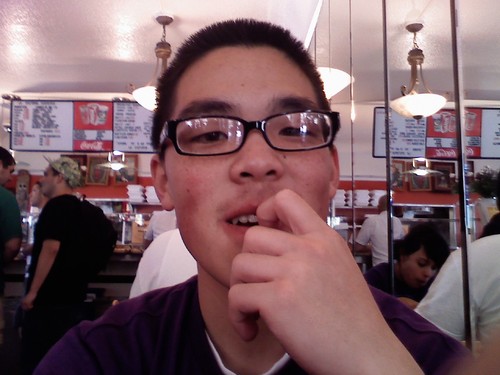Bryan Wong
Chapter 6 Homework
The most surprising thing I found in this chapter was that we cannot assume that the reader knows anything or cares about the research topic. "You cannot count on your audience for a class research paper- the other people in your class- knowing anything, or even caring, about the question you are asking." I didn't think about this when I wrote my first paper in class. I mentioned the Chernobyl incident, which I thought everyone knew about. However, my peer reviewers were most confused about it because they have never heard of it. Another thing I found surprising was the ways we can question the topic. On page 152 it shows "what to research" and on page 159 it shows "evaluating research" tables. I never thought of those kind of questions and ideas. Those questions and ideas would add more length and info to my paper, which is a good thing. The categories are: fact, definition, interpretation, consequence, value and policy. Out of the six categories, I like the consequence one. It not tells them what happens but also how it affects them. "Statistics, historical accounts, photographs of the aftermath of events, and the items in the "interpretation" column." Normally when i write papers I write about the present issues and things. The historical part not as much, I talk about certain historical events like the Chernobyl incident. There are more incidents which happened at a nuclear power plant and each one happened because of a different cause. Like in Japan, an earthquake caused a nuclear power plant to shut down. The policy category is something I never thought of. It shows how not only the people feel about the subject but how the government feels and what they have done. Reading this chapter has gave me a few ideas to write more on.
3/8/09
3/4/09
Give me a signnnnnnnn
I read about illegal signs in San Jose. From the title I thought it meant illegal street signs, like for traffic. Reading more into the article it was about personal signs that people post on street lamps. The ones talking about job listings or lost pets and all that. The problem with them is that people use tape, tacks, wires, and other materials that destroy the the telephone poles. Not only do they destroy the poles, but noone takes them down. They say there is not enough resources to take them down. A group of volunteers formed to clean the signs.
This could also be a research topic too, littering. It might not seem like throwing trash on the floor, but its almost the same. What happens when it rains? Or if the wind blows the sign off? That ends up in the streets. The article even said it costs money to repair and it is unnecessary. The research topic could just be about littering in general. Then branch off into types of littering. I remember somewhere saying that a certain percentage of California's trash is cigarette buds. Not sure about the percentage now. The costs of cleaning up the litter is another topic.
This could also be a research topic too, littering. It might not seem like throwing trash on the floor, but its almost the same. What happens when it rains? Or if the wind blows the sign off? That ends up in the streets. The article even said it costs money to repair and it is unnecessary. The research topic could just be about littering in general. Then branch off into types of littering. I remember somewhere saying that a certain percentage of California's trash is cigarette buds. Not sure about the percentage now. The costs of cleaning up the litter is another topic.
Subscribe to:
Comments (Atom)

